Introduction to Microsoft Dynamics 365
In today’s rapidly evolving business landscape, Microsoft Dynamics 365 stands out as a pivotal solution for organizations seeking to streamline operations and enhance customer relationships. This integrated platform combines the powerful functionalities of both Customer Relationship Management (CRM) and Enterprise Resource Planning (ERP), offering a comprehensive suite of applications designed to drive business growth and efficiency.
Microsoft Dynamics 365 is more than just a software solution; it is a transformative tool that can help businesses adapt to changing market demands. By consolidating various business processes into a unified system, Dynamics 365 allows companies to gain real-time insights, make data-driven decisions, and improve overall productivity. Whether you are looking to manage customer interactions with Microsoft Dynamics CRM or streamline financial and operational processes with Microsoft Dynamics 365 ERP, this platform provides the flexibility and scalability required to meet diverse business needs.
One of the key benefits of Microsoft Dynamics 365 is its ability to integrate seamlessly with other Microsoft products and services, such as Office 365, Azure, and Power BI. This integration not only enhances user experience but also ensures that all business data is centralized and easily accessible. Additionally, the cloud-based nature of Dynamics 365 means that businesses can access their data from anywhere, at any time, fostering greater collaboration and agility.
In essence, Microsoft Dynamics 365 offers a holistic approach to business management, enabling companies to unify their operations, enhance customer engagement, and drive innovation. As businesses continue to navigate the complexities of the digital age, adopting robust solutions like Microsoft Dynamics 365 will be crucial for maintaining competitive advantage and achieving long-term success.
Key Features of Microsoft Dynamics 365
- Unified Platform: Combines CRM and ERP functionalities in a single solution.
- Cloud-Based: Accessible from anywhere, providing flexibility and scalability.
- Customizable Applications: Tailor the platform to meet specific business needs.
- Integration: Seamlessly integrates with other Microsoft products like Office 365, Azure, and Power BI.
- Artificial Intelligence: Leverages AI to provide insights and predictive analytics.
Understanding Microsoft Dynamics CRM
Microsoft Dynamics CRM (Customer Relationship Management) is a powerful tool designed to enhance customer engagement and streamline business operations. At its core, Microsoft Dynamics CRM offers a suite of functionalities that help businesses manage their customer relationships more effectively. The platform encompasses key features such as sales automation, customer service management, and marketing automation, providing a holistic approach to customer relationship management.
One of the primary benefits of Microsoft Dynamics CRM is its ability to automate sales processes. This includes managing leads, opportunities, and sales pipelines, which ensures that sales teams can focus on nurturing customer relationships rather than getting bogged down by administrative tasks. The platform also offers advanced analytics and reporting tools, enabling businesses to gain insights into sales performance and customer behavior.
In addition to sales automation, Microsoft Dynamics CRM excels in customer service management. The platform provides tools for case management, knowledge base creation, and service scheduling, which help businesses deliver exceptional customer support. By centralizing customer information and service interactions, companies can resolve issues more efficiently and improve customer satisfaction.
Marketing automation is another critical component of Microsoft Dynamics CRM. The platform allows businesses to plan, execute, and analyze marketing campaigns with ease. Features such as email marketing, social media integration, and campaign management help companies reach their target audience and measure the effectiveness of their marketing efforts.
One of the standout advantages of Microsoft Dynamics CRM is its seamless integration with other Microsoft products, such as Office 365, Outlook, and Power BI. This integration creates a unified platform that enhances productivity and collaboration across the organization. For instance, sales teams can access customer data directly from Outlook, while managers can use Power BI to visualize and analyze performance metrics.
Overall, Microsoft Dynamics CRM provides a comprehensive solution for managing customer relationships, sales, and service. By leveraging its robust features and seamless integration with other Microsoft products, businesses can enhance efficiency, improve customer satisfaction, and drive growth.
Exploring Microsoft Dynamics 365 ERP
Microsoft Dynamics 365 ERP is a robust enterprise resource planning solution designed to streamline and optimize various business processes. At its core, the ERP system integrates multiple modules that cater to different operational needs, thus providing a cohesive platform for managing a company’s end-to-end operations.
One of the primary modules in Dynamics 365 ERP is the Finance module. This module allows businesses to manage their financial operations, including budgeting, accounting, and financial reporting. With real-time financial insights, companies can make informed decisions and ensure regulatory compliance.
The Supply Chain Management module is another critical component. It enables businesses to oversee their entire supply chain, from procurement and inventory management to production and distribution. By leveraging advanced analytics and automation, the supply chain module helps in reducing costs, optimizing inventory levels, and improving order fulfillment.
Project Management is also a vital module within Microsoft Dynamics 365 ERP. This module facilitates efficient project planning, resource allocation, and tracking of project progress. It ensures that projects are completed on time and within budget, thereby enhancing project profitability and client satisfaction.
The Human Resources module supports the management of employee-related processes. From recruitment and onboarding to performance evaluation and compliance, this module helps in maintaining a productive and motivated workforce. It also integrates with payroll systems to streamline compensation management.
One of the significant advantages of having an integrated ERP system like Microsoft Dynamics 365 is the seamless flow of information across different departments. This integration eliminates data silos, ensuring that decision-makers have access to accurate and up-to-date information. Consequently, it enhances operational efficiency and supports strategic decision-making.
In essence, Microsoft Dynamics 365 ERP provides a comprehensive solution for managing a wide array of business processes. By integrating core modules such as finance, supply chain, project management, and human resources, it empowers organizations to operate more efficiently and make data-driven decisions that drive growth and profitability.
The pursuit of Microsoft Dynamics 365 certification can significantly enhance the professional trajectory of individuals and the operational efficiency of organizations. Microsoft offers a range of certification paths tailored to various roles and specializations within the Dynamics 365 ecosystem. These certifications validate expertise, boost credibility, and provide a competitive edge in the job market.
One of the foundational certifications is the Dynamics 365 Fundamentals. This certification is ideal for those who are new to Dynamics 365 and provides a broad overview of the platform’s capabilities, including its applications and the underlying Microsoft Power Platform. It serves as a stepping stone for more specialized certifications and is suitable for professionals in roles such as business analysts, functional consultants, and IT managers.
For those looking to delve deeper, the Dynamics 365 Finance and Operations certification is highly regarded. This certification focuses on the financial management and operational aspects of Dynamics 365, encompassing areas such as budgeting, accounts receivable and payable, and supply chain management. It is particularly beneficial for professionals aiming to work as functional consultants, financial analysts, or operations managers.
Achieving certification in Microsoft Dynamics 365 offers numerous benefits. For individuals, it signifies a commitment to professional development and a high level of competency, making them more attractive to employers. Certified professionals often enjoy better job prospects, higher salaries, and greater career advancement opportunities. For businesses, having certified employees ensures that the organization can effectively leverage Dynamics 365 to optimize processes, drive innovation, and maintain a competitive edge in the market.
Other notable certifications include the Dynamics 365 Customer Service and Dynamics 365 Sales certifications, each designed to equip professionals with the skills needed to enhance customer engagement and drive sales performance. By pursuing these certifications, professionals can specialize in key areas and contribute to the strategic goals of their organizations.
In conclusion, Microsoft Dynamics 365 certifications are a valuable investment for both individuals and businesses. They not only validate expertise but also empower professionals and organizations to maximize the potential of Dynamics 365, fostering growth and success in a dynamic business environment.
Microsoft Dynamics CRM and ERP: A Synergistic Approach
Microsoft Dynamics 365 integrates CRM and ERP systems, offering a synergistic approach to business management. Let’s take a closer look at these components:
Microsoft Dynamics CRM
Microsoft Dynamics CRM focuses on customer relationship management, providing tools to manage sales, marketing, and customer service. It helps businesses nurture customer relationships, streamline sales processes, and enhance customer satisfaction.
Key Features of Microsoft Dynamics CRM:
- Sales Automation: Streamlines sales processes and enhances productivity.
- Customer Service: Provides tools to deliver exceptional customer service.
- Marketing Automation: Helps plan, execute, and analyze marketing campaigns.
- Customer Insights: Offers data-driven insights to understand customer behavior.
Microsoft Dynamics 365 ERP
Microsoft Dynamics 365 ERP encompasses enterprise resource planning functionalities, helping businesses manage their core operations, including finance, supply chain, and human resources.
Key Features of Microsoft Dynamics 365 ERP:
- Financial Management: Manages financials, including budgeting, accounting, and reporting.
- Supply Chain Management: Optimizes supply chain operations, from procurement to distribution.
- Human Resources: Streamlines HR processes, including recruitment, payroll, and performance management.
- Project Management: Provides tools to manage projects efficiently.
The Microsoft Dynamics 365 Ecosystem
The strength of Microsoft Dynamics 365 lies in its ecosystem, which includes a variety of applications tailored to different business functions. Here are some of the key applications within the Microsoft Dynamics 365 ecosystem:
Microsoft Dynamics 365 Sales
Enhances sales performance by providing tools for sales automation, pipeline management, and customer insights.
Microsoft Dynamics 365 Marketing
Empowers marketing teams with tools for campaign management, email marketing, and customer segmentation.
Microsoft Dynamics 365 Customer Service
Provides a comprehensive suite of tools to deliver personalized and efficient customer service.
Microsoft Dynamics 365 Field Service
Optimizes field service operations by providing tools for scheduling, resource management, and customer communication.
Microsoft Dynamics 365 Finance
Manages financial operations, including budgeting, forecasting, and reporting.
Microsoft Dynamics 365 Supply Chain Management
Streamlines supply chain processes, including inventory management, procurement, and logistics.
Microsoft Dynamics 365 Human Resources
Automates HR processes, including recruitment, onboarding, and performance management.
Microsoft Dynamics 365 Certification
For professionals looking to enhance their expertise and career prospects, Microsoft Dynamics 365 offers a range of certification programs. These certifications validate your skills and knowledge in various aspects of the platform, from CRM and ERP functionalities to specific applications like sales, marketing, and finance.
Benefits of Microsoft Dynamics 365 Certification
- Career Advancement: Demonstrates your expertise and enhances your career opportunities.
- In-Depth Knowledge: Provides comprehensive knowledge of Microsoft Dynamics 365.
- Industry Recognition: Recognized by employers and peers in the industry.
- Networking Opportunities: Connects you with a community of certified professionals.
Popular Microsoft Dynamics 365 Certifications
- Microsoft Certified: Dynamics 365 Fundamentals: Provides a foundational understanding of the platform.
- Microsoft Certified: Dynamics 365 Sales Functional Consultant Associate: Validates expertise in Dynamics 365 Sales.
- Microsoft Certified: Dynamics 365 Marketing Functional Consultant Associate: Validates expertise in Dynamics 365 Marketing.
- Microsoft Certified: Dynamics 365 Finance and Operations Apps Developer Associate: Validates expertise in developing solutions for finance and operations.
Microsoft Dynamics AX and Its Evolution
Microsoft Dynamics AX, originally known as Axapta, was first developed by Damgaard Data and later acquired by Microsoft in 2002. It quickly became a robust enterprise resource planning (ERP) solution, offering comprehensive functionalities for finance, supply chain management, human resources, and more. Over the years, Microsoft Dynamics AX established itself as a reliable choice for large and medium-sized enterprises looking to streamline operations and enhance business processes.
The transition from Dynamics AX to Dynamics 365 Finance and Operations marked a significant evolution in Microsoft’s ERP offerings. With the introduction of Dynamics 365 in 2016, Microsoft aimed to create a unified platform that integrates ERP and customer relationship management (CRM) capabilities. Dynamics AX was rebranded as Dynamics 365 for Finance and Operations, reflecting its enhanced scope and capabilities.
One of the most notable improvements during this transition was the migration to a cloud-first architecture. This shift allowed organizations to leverage the scalability, flexibility, and security of the cloud. Furthermore, it facilitated seamless updates and integrations with other Microsoft services such as Azure, Power BI, and Office 365. The cloud-based nature of Dynamics 365 Finance and Operations also enabled better accessibility, allowing users to access the system from anywhere at any time.
In addition to cloud capabilities, the user interface was significantly enhanced to improve usability and user experience. The modern, intuitive design made it easier for users to navigate the system, reducing training time and increasing productivity. Advanced analytics and AI-powered insights were also integrated, empowering businesses with data-driven decision-making capabilities.
The Microsoft Dynamics 365 logo has become a symbol of innovation and efficiency in the ERP landscape, representing the seamless integration and comprehensive solutions offered by Dynamics 365 Finance and Operations. This evolution from Dynamics AX to Dynamics 365 Finance and Operations highlights Microsoft’s commitment to continuously improving its ERP solutions to meet the ever-changing needs of businesses.
Comparing Microsoft Dynamics 365 and Office 365
While both Microsoft Dynamics 365 and Microsoft 365 (formerly Office 365) are integral to the Microsoft ecosystem, they serve distinct purposes and cater to different business needs. Microsoft Dynamics 365 is primarily a suite of enterprise resource planning (ERP) and customer relationship management (CRM) applications. It is designed to manage and streamline business operations, from sales and marketing to finance and supply chain management. On the other hand, Microsoft 365 is a collection of productivity tools including Word, Excel, Outlook, and Teams, which facilitate communication, collaboration, and document management.
Microsoft Dynamics 365 focuses on operational efficiency and customer engagement. It offers applications that enable businesses to automate workflows, gain insights through data analytics, and enhance customer service. For example, Dynamics 365 Sales helps track customer interactions and forecast sales, while Dynamics 365 Finance manages financial operations and ensures regulatory compliance. These tools are essential for organizations looking to optimize their operational processes and enhance customer satisfaction.
Conversely, Microsoft 365 aims to boost productivity and collaboration within organizations. With tools like Microsoft Teams for communication, SharePoint for document management, and OneDrive for cloud storage, it supports a collaborative work environment. Microsoft 365 applications are essential for day-to-day tasks, such as document creation, email communication, and virtual meetings, making it an indispensable suite for modern workplaces.
Despite their different functionalities, Microsoft Dynamics 365 and Microsoft 365 complement each other well. Integration capabilities are a key strength of the Microsoft ecosystem. For instance, Dynamics 365 can be integrated with Outlook to streamline communication or with Excel for advanced data analysis. This seamless integration ensures that businesses can leverage the strengths of both suites to achieve a cohesive and efficient operation. By combining the robust operational tools of Dynamics 365 with the productivity features of Microsoft 365, organizations can create a unified environment that enhances both internal collaboration and external customer engagement.
Case Studies and Real-World Applications
Microsoft Dynamics 365 has demonstrated its value across various industries by addressing specific business challenges and delivering measurable outcomes. One noteworthy example is the implementation by a large retail chain facing significant inventory management issues. The company struggled with overstocking and understocking, which led to lost sales and high holding costs. By adopting Microsoft Dynamics 365, they integrated their supply chain management with real-time inventory tracking. This enabled better demand forecasting and automated reordering processes, resulting in a 30% reduction in inventory costs and a 20% increase in sales due to improved product availability.
Another compelling case is a financial services firm that encountered difficulties in managing customer relationships and maintaining compliance with regulatory requirements. The firm implemented Dynamics 365 to unify customer data across departments, enhancing customer insights and enabling personalized service. The built-in compliance features helped streamline regulatory reporting and reduce the risk of non-compliance. Post-implementation, the firm reported a 25% increase in customer retention rates and a significant reduction in compliance-related operational costs.
A third example involves a manufacturing company struggling with inefficiencies in their production processes and a lack of visibility into operational performance. Microsoft Dynamics 365 provided an integrated solution that connected production, financials, and human resources. The company leveraged real-time data analytics to optimize production schedules, manage resources more effectively, and reduce downtime. As a result, they experienced a 15% increase in production efficiency and a 10% decrease in operational costs within the first year of deployment.
These case studies illustrate the practical benefits of Microsoft Dynamics 365, showcasing its ability to solve complex business problems and deliver substantial return on investment (ROI). By leveraging the comprehensive suite of tools offered by Dynamics 365, businesses can achieve greater operational efficiency, enhance customer satisfaction, and drive growth across various sectors.
FAQs About Microsoft Dynamics 365
What is Microsoft Dynamics 365 used for?
Microsoft Dynamics 365 serves as a comprehensive suite of business applications designed to enhance customer relationship management (CRM) and enterprise resource planning (ERP) functionalities. Its integration with other Microsoft services and tools provides a cohesive ecosystem for businesses to streamline operations, improve customer engagement, and drive growth. The platform is used across various industries to manage finance, supply chain, sales, marketing, and customer service operations efficiently.
Is Dynamics 365 a CRM or ERP?
Dynamics 365 is both a CRM and ERP system. It unifies CRM and ERP capabilities by delivering new applications that work seamlessly together across sales, customer service, field service, operations, financials, marketing, and project service automation. This integration allows organizations to break down silos, make better decisions, and drive business transformation.
What is Microsoft Dynamics 365 an example of?
Microsoft Dynamics 365 exemplifies a cloud-based, modular suite of business applications. It leverages the power of artificial intelligence and machine learning to provide actionable insights and improve business processes. This platform is a prime example of how cloud technology can enable digital transformation by offering flexible, scalable, and intelligent solutions tailored to various business needs.
What is the difference between Microsoft 365 and Dynamics 365?
The primary difference between Microsoft 365 and Dynamics 365 lies in their core functionalities. Microsoft 365 is an integrated suite of productivity tools, including Office applications like Word, Excel, and Outlook, designed to enhance collaboration and productivity. In contrast, Dynamics 365 focuses on business processes, offering advanced CRM and ERP capabilities to manage customer interactions and streamline operations. While both are cloud-based and can be integrated, they serve distinct purposes within an organization.
What is Microsoft Dynamics 365 Finance and Operations?
Microsoft Dynamics 365 Finance and Operations is a robust ERP solution aimed at large enterprises. It helps organizations manage their financials, automate and streamline supply chain operations, and optimize production processes. This application supports global operations, ensuring compliance with local regulations and standards, thereby enabling businesses to scale efficiently and maintain operational excellence.
What is Microsoft Dynamics 365 Business Central?
Microsoft Dynamics 365 Business Central is an all-in-one business management solution tailored for small to medium-sized enterprises (SMEs). It provides comprehensive capabilities for managing finance, sales, service, and operations within a single application. Business Central facilitates data-driven decision-making, enhances productivity, and helps SMEs automate and streamline their business processes, making it an ideal choice for growing businesses looking to unify their operations.
What is Microsoft Fabric?
Microsoft Fabric is a data integration and analytics platform designed to provide businesses with a unified solution for managing, analyzing, and visualizing their data. It integrates with various data sources, offering tools for data preparation, transformation, and analysis, all within a single platform. Microsoft Fabric is part of Microsoft’s broader ecosystem, ensuring compatibility and seamless integration with other Microsoft services and products.
Conclusion
In this comprehensive guide, we have delved into the multifaceted capabilities and advantages of Microsoft Dynamics 365. This powerful suite of business applications integrates seamlessly with various departments, offering unparalleled efficiency and insight. From managing customer relationships and automating business processes, to providing robust analytical tools and enhancing decision-making, Dynamics 365 stands out as a pivotal solution for modern enterprises.
The significance of Microsoft Dynamics 365 in today’s competitive business landscape cannot be overstated. Its modular design allows organizations to tailor the platform to their specific needs, ensuring a personalized approach to business management. Whether it’s streamlining sales processes, optimizing supply chain operations, or enhancing customer service, Dynamics 365 provides a cohesive and scalable framework that empowers businesses to thrive.
We encourage you to further explore the myriad of features and benefits that Microsoft Dynamics 365 offers. By leveraging its comprehensive suite of tools, your organization can achieve greater operational efficiency, improved customer satisfaction, and a significant return on investment. Embracing this technology is not just a step towards modernization, but a strategic move to stay ahead in an ever-evolving market.
To stay informed about the latest updates and best practices related to Microsoft Dynamics 365, engage with our content regularly. Connect with industry experts, participate in webinars, and join user communities to maximize the potential of this transformative platform. Consider how integrating Microsoft Dynamics 365 can drive your business forward and establish a foundation for sustained success.

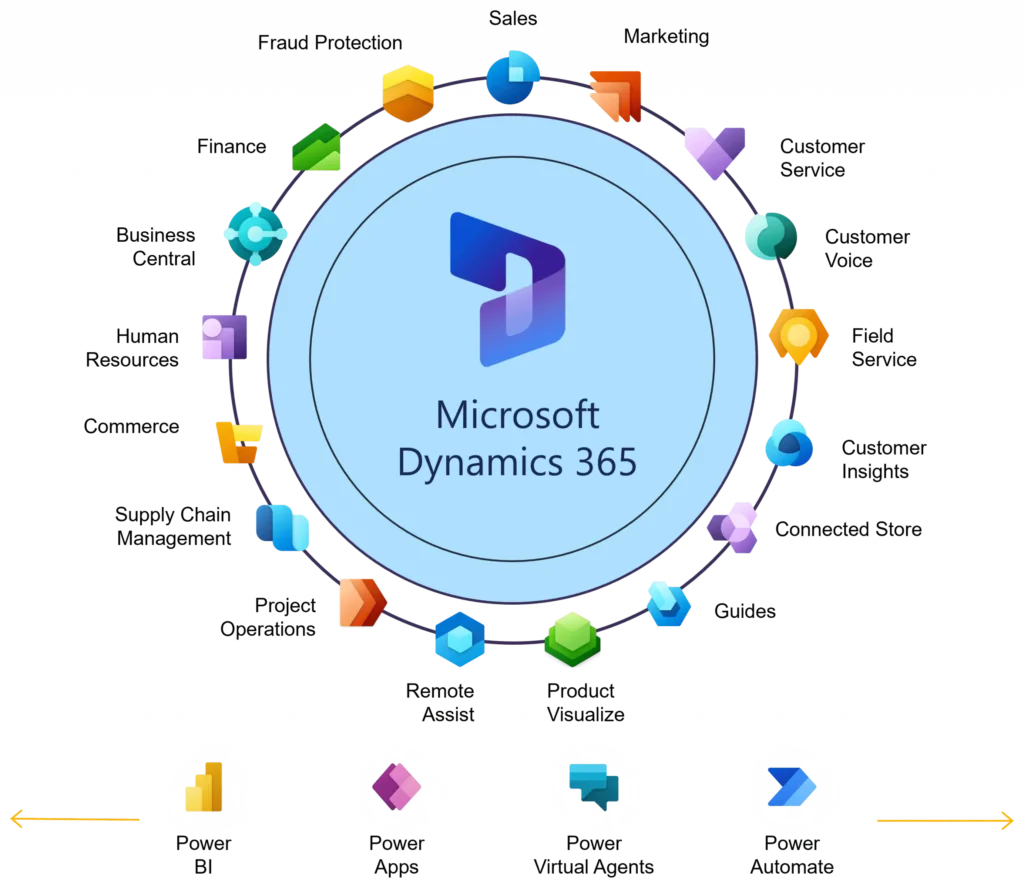
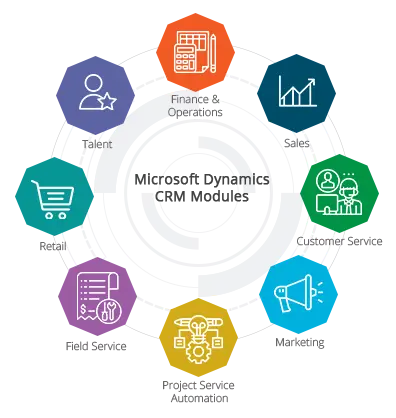
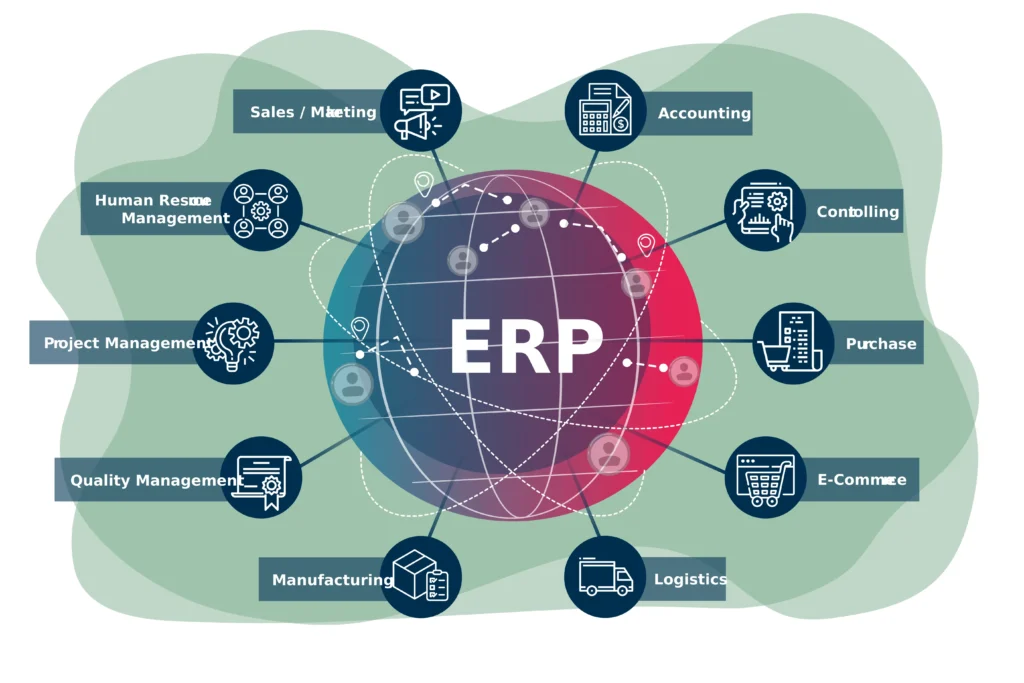
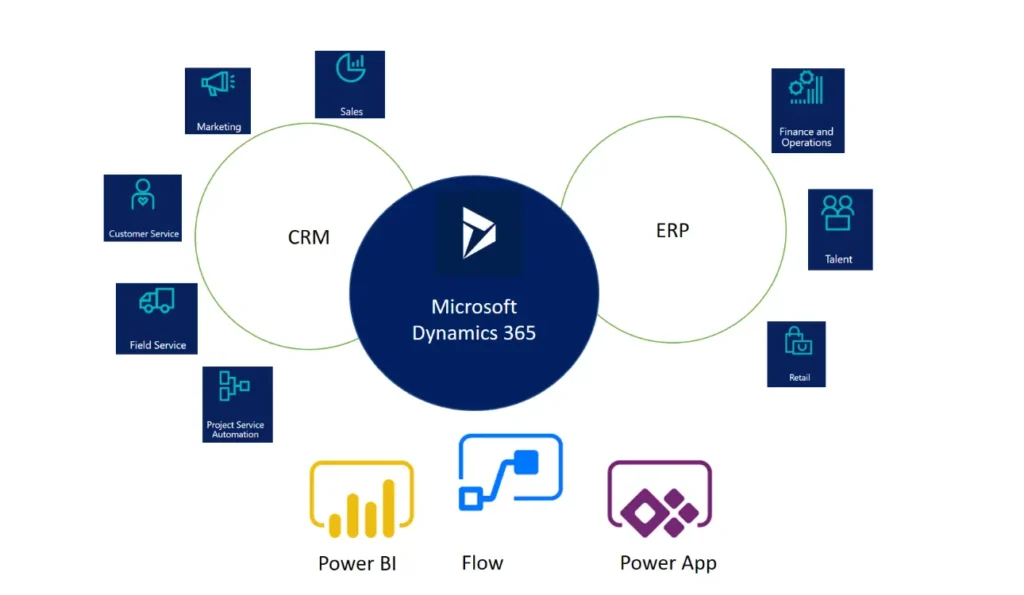
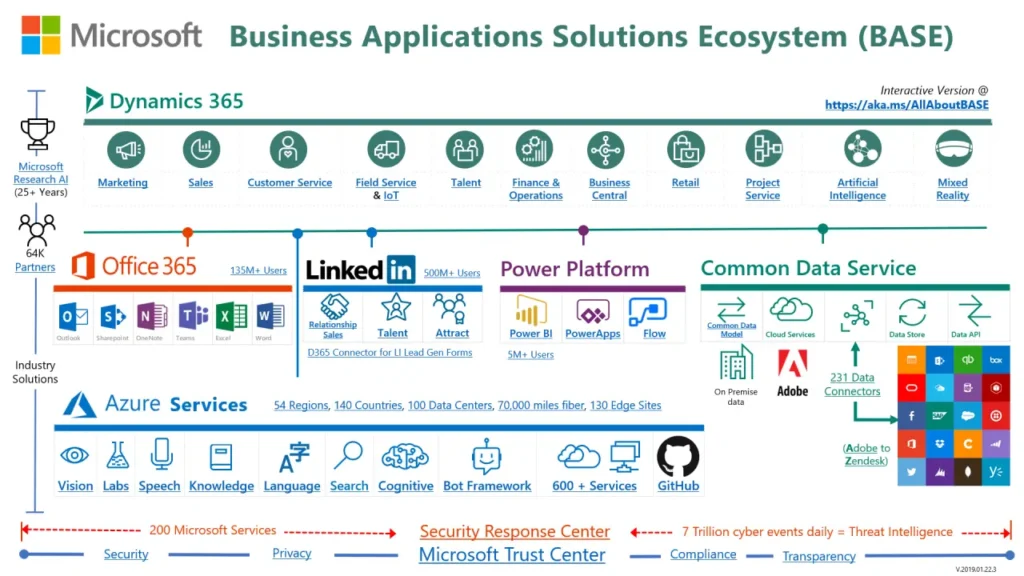
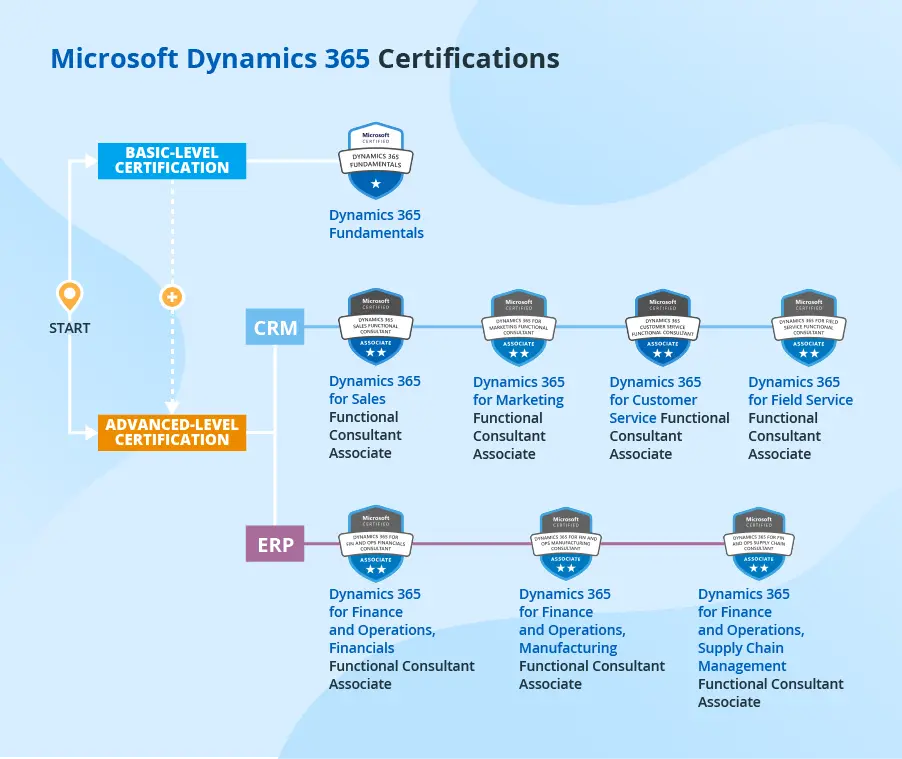
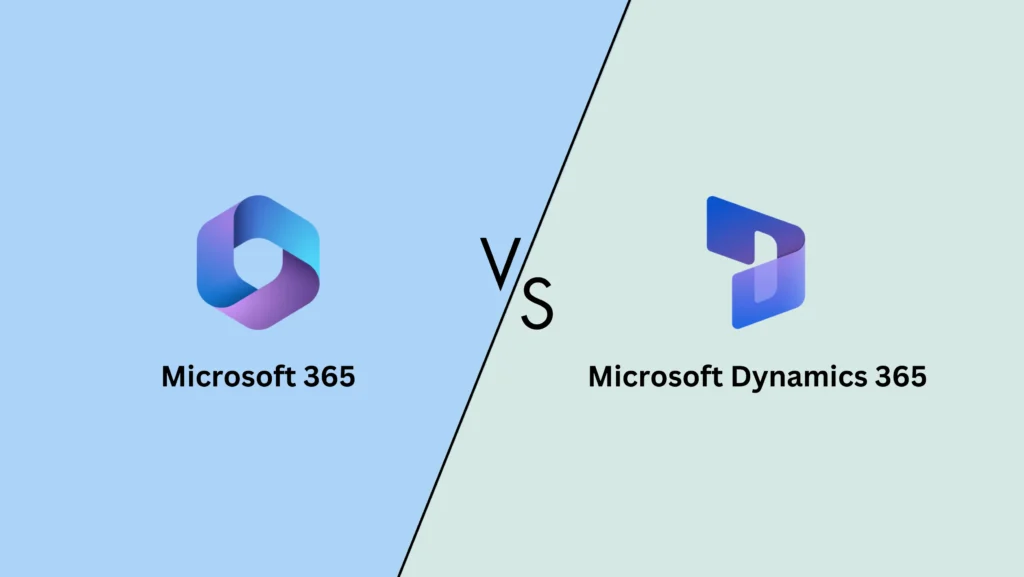
14 thoughts on “What is Microsoft Dynamics 365? A Comprehensive Guide”